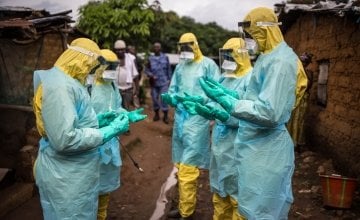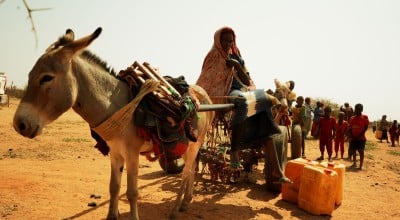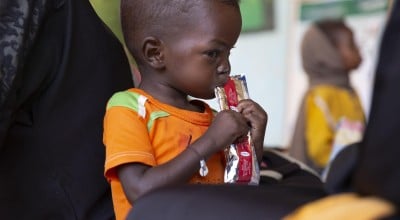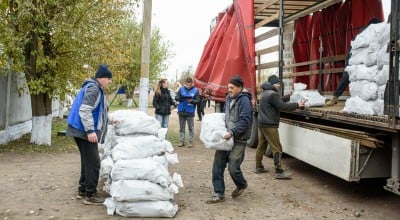
Read our 2024 annual report

Knowledge Hub
Concern welcomes WHO declaration on Ebola outbreak in the Democratic Republic of Congo

Concern Worldwide has welcomed the declaration by the World Health Organisation (WHO) that the Ebola outbreak in the Democratic Republic of Congo (DRC) is a “public health emergency of international concern” (PHEIC).
“We welcome the WHO declaration for the second largest outbreak of Ebola, as we head towards the first anniversary of the current outbreak,” said Reka Sztopa, Concern’s Regional Director for Francophone Africa. “It is warranted given the first incidence of Ebola in the city of Goma, the capital city of the North Kivu province, the fact that transmission is increasing in Beni, where we thought it was under control, and that we have cases in neighbouring Uganda.”
The current outbreak has killed 1,698 people and infected 2,522 in the DRC*, according to the WHO. The death toll has risen by 358% since the start of the year.
This is only the fifth time that the WHO has issued a PHEIC declaration. Previously it was declared for the swine flu pandemic in 2009, the polio virus in 2014, the Ebola epidemic in West Africa between 2014 and 2016, and the Zika virus in 2016.
Why PHEIC?
The purpose of declaring a PHEIC is to advise the world on what measures need to be taken to enhance global health security by preventing international transmission of an infectious hazard.
The International Health Regulation Emergency Committee for Ebola virus disease issued recommendations on how to further strengthen the response, how neighbouring countries can prevent onward spread and how all countries can support DRC, especially by not imposing travel and trade restrictions, which it said would be ineffective.
Irish Aid has provided €560,000 over the past 11 months to support Concern’s work to reduce the spread of Ebola in the DRC. This funding has been used to assist 30 health centres in North Kivu, to prepare communities in the event of Ebola occurring in their area.
Concern staff are providing infection-prevention control kits to the centres and training 1,150 health workers in how to use them.
They are also rehabilitating water points, showers and toilets at the health centres. In addition, they will provide Ebola awareness sessions to an estimated 400,000 people.
Concern has been working in the DRC since 1994. Its team is currently engaging with communities as part of a strategy developed by the DRC government, non-government organisations, WHO and UNICEF.
“The reasons why this outbreak has not come under control are the insecurity on the ground and community resistance,” Reka said.
“Local resistance is being fuelled by the fact that people see massive resources flowing in to address Ebola while there are many other issues which need to be addressed in the area.
“Concern’s approach has been to recruit local staff who will engage with local communities and local chiefs, not just about Ebola, but about the needs in their area.”
Our response to date
Since September 2018, Concern has been working in at-risk areas of North Kivu, preparing communities for an onset of the virus.
“This has included providing latrines for schools or rehabilitating local water points – resources which can be used by the whole community. It is a way of gaining confidence, which makes it easier to also disseminate information about Ebola and what to do if there is a case in their community.”
Reka strongly supported the WHO’s call for other countries not to impose travel and trade restrictions on the DRC. “It would be tragic if the borders between DRC and Rwanda or Uganda closed, as it would create severe economic hardship for the Congolese people, and make it harder rather than easier to stop the virus spreading,” she said.
The DRC, which is 27 times the size of Ireland with a population of over 85.2 million, is concurrently experiencing other epidemics that include cholera, measles and malaria.
If you wish to arrange a media interview with Reka Sztopa, or for more information please contact Media Relations Manager Eamon Timmins at 087 9880524 or by email eamon.timmins@concern.net.
Our impact in 2024
people reached through our emergency response
people reached through our health interventions
people reached through our livelihoods programmes
Other ways to help
Corporate support
Is your company interested in working together for a common cause?
Fundraise for Concern
From mountain trekking to marathon running, cake sales to table quizzes, there are lots of ways you can support our work.
Buy a gift
With an extensive range of alternative gifts, we have something to suit everybody.
Leave a gift in your will
Leave the world a better place with a life-changing legacy.
Volunteer with Concern
The lots of ways to get involved with our work as a volunteer
School fundraising
Without the generous support from schools, we wouldn't be able to do the work that we do.




